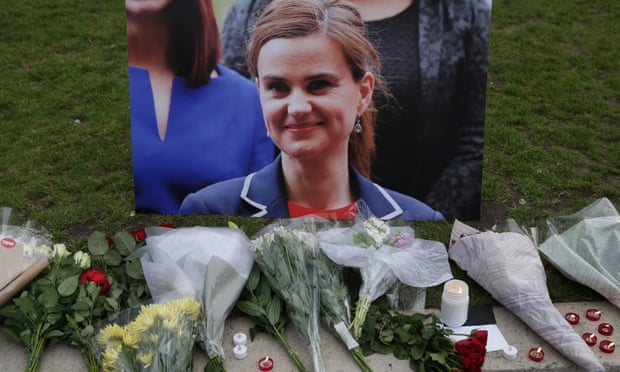 Bernie Sanders joins striking FairPoint workers on the picket line in South Burlington, Vermont, January 18.
For a year now, presidential candidate Bernie Sanders has been the hope of millions in the United States. He has been the hope of people disgusted with the role of the banks and corporations in politics, angered by growing inequality, appalled by racial injustice and opposed to a foreign policy based on military intervention.
Bernie Sanders joins striking FairPoint workers on the picket line in South Burlington, Vermont, January 18.
For a year now, presidential candidate Bernie Sanders has been the hope of millions in the United States. He has been the hope of people disgusted with the role of the banks and corporations in politics, angered by growing inequality, appalled by racial injustice and opposed to a foreign policy based on military intervention.
1098
 Bernie Sanders joins striking FairPoint workers on the picket line in South Burlington, Vermont, January 18.
For a year now, presidential candidate Bernie Sanders has been the hope of millions in the United States. He has been the hope of people disgusted with the role of the banks and corporations in politics, angered by growing inequality, appalled by racial injustice and opposed to a foreign policy based on military intervention.
Bernie Sanders joins striking FairPoint workers on the picket line in South Burlington, Vermont, January 18.
For a year now, presidential candidate Bernie Sanders has been the hope of millions in the United States. He has been the hope of people disgusted with the role of the banks and corporations in politics, angered by growing inequality, appalled by racial injustice and opposed to a foreign policy based on military intervention.
“Oil didn’t wreck Venezuela’s economy, socialism did.” That’s what Pascal-Emmanuel Gobry, of the Washington-based conservative think tank Ethics and Public Policy Center, wrote earlier this year in his reflection on Venezuela’s deepening economic crisis.
Gobry, a prolific writer for Forbes and the Wall Street Journal, criticised Venezuelan analysts who scapegoat oil, even though he recognised that declining oil prices have aggravated the nation’s difficulties.
“The culprit is clear and obvious,” Golbry contends. “The problem is Venezuela's authoritarian socialism.”
There's a war going on — the class war. Funnily enough, the only time you hear politicians using that term is as an epithet, not as a descriptor for the daily life of the overwhelming majority of society.
An example: Prime Minister Malcolm Turnbull accused Labor leader Bill Shorten of declaring war on business and waging a “class war” for making the modest suggestion that the rich should pay a fairer share of tax.
Animal rights activist Carolyn Drew was charged with trespassing on Territory land during the 2014 kangaroo cull. Almost two years later, the ACT Magistrates Court rejected the prosecution's allegations and threw out the case on June 9.
Drew, from Animal Liberation ACT, was charged with “Trespass on Territory Land” under a 1932 Act.
Outside the court she said: “All the prosecution had to prove was that there was an authorised 'no trespass' sign on the land. Not only did they fail to prove the sign was authorised, but they couldn't even prove it was there at all.
 About 20 protesters demonstrated in front of the Melbourne Department of Immigration and Border Protection (DIBP) on June 6 over allegations of asylum seeker mistreatment. Police presence was described by observers as extremely heavy, ranging from two dozen to fifty officers.
About 20 protesters demonstrated in front of the Melbourne Department of Immigration and Border Protection (DIBP) on June 6 over allegations of asylum seeker mistreatment. Police presence was described by observers as extremely heavy, ranging from two dozen to fifty officers.
 About 20 protesters demonstrated in front of the Melbourne Department of Immigration and Border Protection (DIBP) on June 6 over allegations of asylum seeker mistreatment. Police presence was described by observers as extremely heavy, ranging from two dozen to fifty officers.
About 20 protesters demonstrated in front of the Melbourne Department of Immigration and Border Protection (DIBP) on June 6 over allegations of asylum seeker mistreatment. Police presence was described by observers as extremely heavy, ranging from two dozen to fifty officers.
 British Labour MP Jo Cox, who was murdered by an apparent fascist on June 16, was a strong advocate for refugee rights.
Several non-profit groups that used to work closely with her and the refugees for whom she advocated immediately expressed their sorrow and praised her commitment to human dignity in Britain and abroad.
British Labour MP Jo Cox, who was murdered by an apparent fascist on June 16, was a strong advocate for refugee rights.
Several non-profit groups that used to work closely with her and the refugees for whom she advocated immediately expressed their sorrow and praised her commitment to human dignity in Britain and abroad.
 About 20 protesters demonstrated in front of the Melbourne Department of Immigration and Border Protection (DIBP) on June 6 over allegations of asylum seeker mistreatment. Police presence was described by observers as extremely heavy, ranging from two dozen to fifty officers.
About 20 protesters demonstrated in front of the Melbourne Department of Immigration and Border Protection (DIBP) on June 6 over allegations of asylum seeker mistreatment. Police presence was described by observers as extremely heavy, ranging from two dozen to fifty officers.
Earlier this month, Department of Employment figures about the government's remote Work for the Dole scheme proved what critics have known for some time: the policy is failing. In Arnhem Land, people are buying less food since tough Work for the Dole penalties were introduced.
Teaching is one of the lowest-paid professions and casual relief teachers (CRTs) are among the most marginalised and exploited workers in Victoria.
Our daily pay rate is $293. Think that sounds good? Well, there are about 200 teaching days a year. If we were to work every one of those days, we would still earn less than $60,000 a year — that is the maximum pay we can expect, after a minimum of four years at university.
But we are emergency teachers; we can expect to work, at most, about 100 days. That is less than $30,000 a year.
Where were you in May when the New South Wales state government announced it will scrap the free rides the Opal card currently gives you after having paid for eight trips in one week?
I was not gazing out the window of a train daydreaming that I was on a catbus — the magical type of public transport in Hayao Miyazaki's 1988 anime classic, My Neighbour Totoro.
Kumaravadivel Guruparan, a law lecturer at Jaffna University, told a meeting in Melbourne on June 12 that the pervasive oppression of Tamils in Sri Lanka is leading to the "normalisation of abnormalcy".
Guruparan was delivering the annual Eliezer memorial lecture, in honour of Professor C J Eliezer, a noted mathematical physicist and campaigner for Tamil rights.
- Previous page
- Page 2
- Next page






